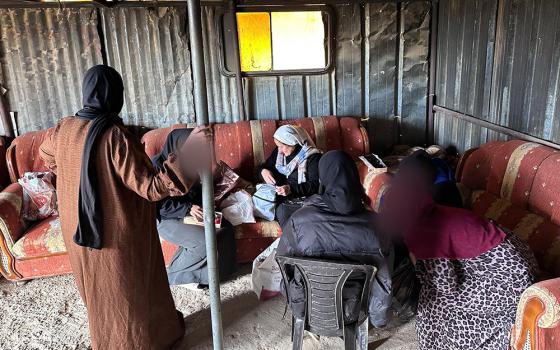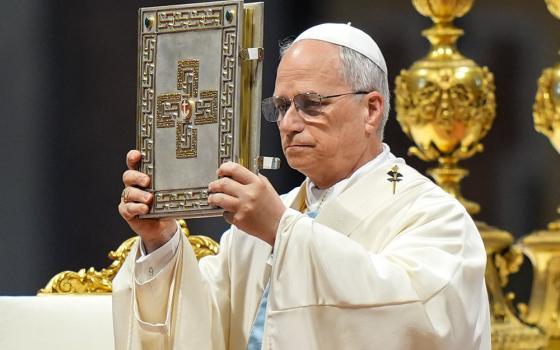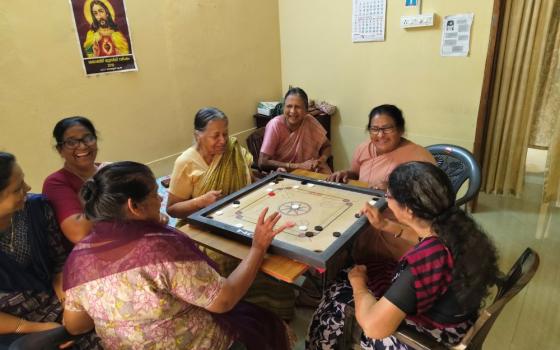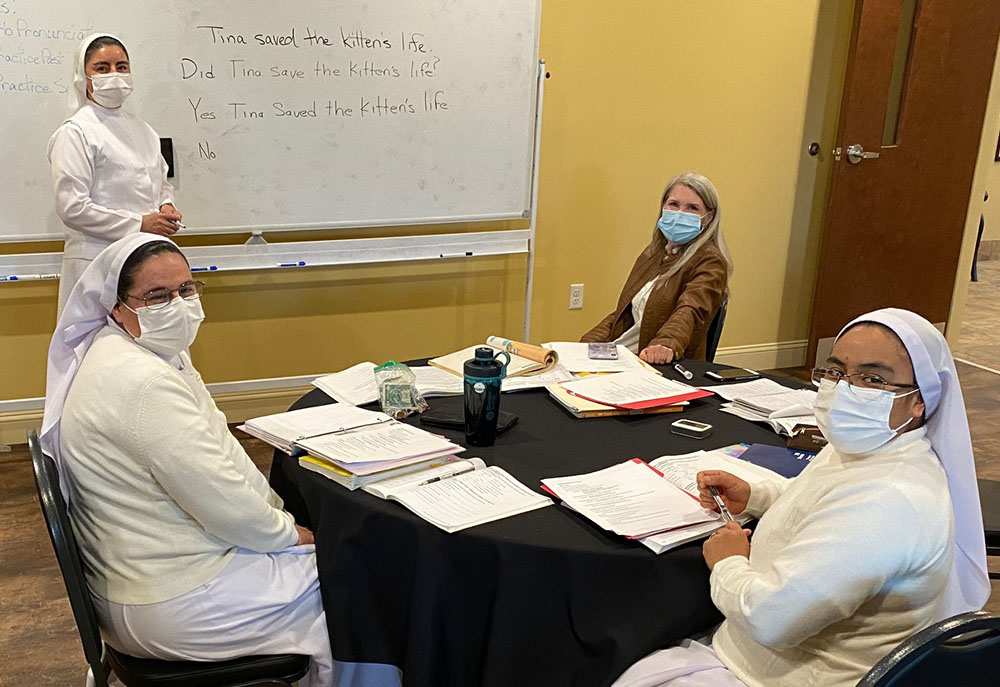
From left: Sr. Ignacia García Ramos, Sr. Guadalupe Martínez Castillo, instructor Kim Campbell, and Sr. Felipa Santos Tapia in a March class in English as a second language at Centro de San Juan Diego in Lexington, Kentucky. (Courtesy of Jim Bennett)
Meet Sr. Ignacia García Ramos, Sr. Felipa Santos Tapia and Sr. Guadalupe Martínez Castillo. The Missionary Daughters of the Rosary of Our Lady of Fátima, located in Guanajuato, Mexico, arrived in Kentucky in November 2019.
This year, after completing classes in English as a second language, the sisters will begin a five-year apostolate in the Lexington Diocese.
Besides their current ESL studies, the sisters also host adoration, pray the rosary, and teach youth formation to neighborhood Catholic teenagers at the new Centro de San Juan Diego in the city's northwest neighborhood of Cardinal Valley, which serves both its residents and an estimated 10,000 area Hispanics.
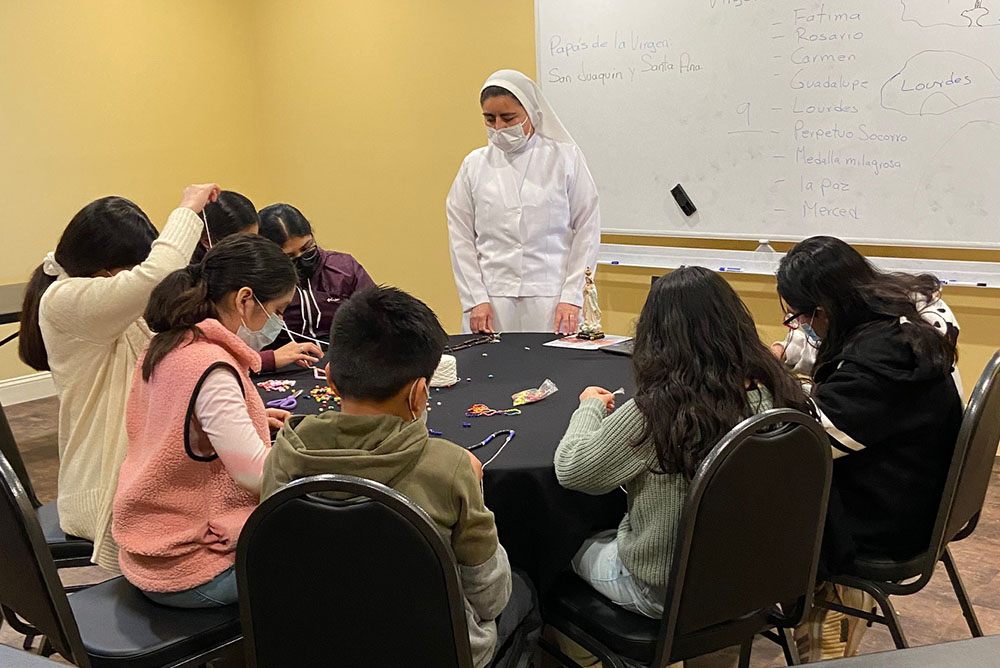
Sr. Ignacia García Ramos teaches an afterschool faith formation class for elementary school students in March at Centro de San Juan Diego in Lexington, Kentucky. (Courtesy of Luz Bejarano)
The questions for the sisters were translated into Spanish by the center's co-founder and co-director, Deacon Jim Bennett. The sisters discussed each topic, and Bennett translated their replies into English.
GSR: Why are you doing a mission in the United States instead of carrying out one in Mexico?
The sisters: Because our spirituality is missionary, we are willing to go where the order sends us, and we will go where God wants us to go.
Our founder said that our charism is being open to the needs of the church and always working for the good of the poorest and most needy. We are living, deepening and making the charism of the congregation bear fruit.
We are here thanks to the Catholic Extension program, which made the invitation to different religious congregations. By the grace of God and the good of many souls, our congregation was one of them, since our charism fulfills the objectives and mission of Catholic Extension.
How was the Centro de San Juan Diego chosen as your place of work?
We came to the United States available and willing to work with our Hispanic brothers. The Centro de San Juan Diego is and always will be a place of welcome and our mission. God, Bishop John Stowe, and Deacon Jim have decided, and decided well, that we should work here because most of the people in this area are Hispanic.
The work we do here is the formation and accompaniment of faith, the ministry of listening, and being a bridge between the Hispanic community and God. There are parishes here with many Hispanics who need attention, accompaniment and spiritual formation.
How different or difficult will the work you do here be?
It is a new mission for us and our congregation. Most of our apostolates are in Mexico, and the work here is a little different from the work we do there.
We consider this mission to be an opportunity for growth that God gives us. The language was our first difficulty, but we are taking English classes, which we hope will help us master the language. The ESL classes have given us the training to understand the language, culture and customs of this country and to ably face the challenges of our new mission.
Advertisement
What was the most difficult part of your ESL education?
The spelling rules, correct writing and punctuation.
What are the goals you want to achieve after you master English?
We want to communicate with people, listen to their needs, support them, create support groups for women, and provide training for young people and children. We will do this by dedicating our time, empathy and listening to children, youth and adults.
What kind of follow-up and progress reports will you be sending back to the sisters in Mexico?
We will send reports every six months on our progress in learning English, our university studies, work with children, home visitations, our devotion to the spirituality of Our Lady of Fátima, our mission work here at San Juan Diego, and other activities we direct at our new home.
[Robert Alan Glover has written for Global Sisters Report, the National Catholic Reporter, the Tennessee Register, Faith West Tennessee diocesan magazine, and Cross Roads diocesan magazine in Lexington, Kentucky. He lives in Lexington.]




